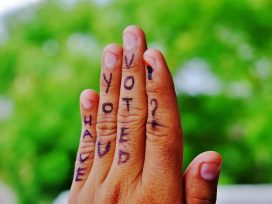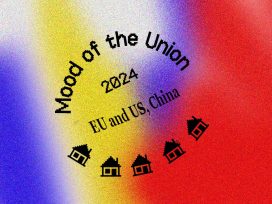First, a few facts: according to the prognoses of Dusan Semolich from the Association of Free Trade Unions of Slovenia (ZSSS), Pahor’s coalition government will soon be the target of workers’ demonstrations. Unemployment will grow and the Chamber of Commerce of Slovenia is predicting at least 115,000 unemployed by next year, while more pessimistic scenarios foresee 130,000 people or more out of work. Currently, the number is about 90,000. 6,500 young people with higher education will be without jobs, according to forecasts by the Students Organization of Slovenia. This year there are 3,200. Based on projections from the Ministry of Finance, national debt may grow by 36.7 per cent of GDP with a financial deficit of approximately 5.3 per cent. Changes in the pension system and new taxes, for example on real estate, are to be expected. In short, there are a multitude of reasons for citizens to be concerned, and very few causes for optimism. If this government is dissolved prematurely, it will likely be responsible for its own undoing since it not only set out to solve the economic crisis (leaving aside for a moment the question of success), but also, and at the same time, tried to serve up a heap of systemic, social, pension and other solutions, even though these could have waited. However much we praise such zeal, we cannot condone the timing. The political kairos for this kind of thing is not right, and the effort has only exacerbated (or will soon) the psychological effect of frightening the population.
The fact that the Slovenian government is simultaneously attempting to solve the economic crisis and introduce systemic reforms arouses a double dose of unease and foreboding regarding the future. It is fair to say that this government is following a slogan opposite to that of the previous government: in 2004, Slovenes went to the polls and voted predominantly for the block of parties on the right which promised us a “relaxed” Slovenia. Today, not only would the right likely not dare use this kind of slogan, but the current government is literally working on making us excessively worried. Warnings about the gloomy future flourish, and data on raising the retirement age, freezing wages and pensions, and working till the end of one’s life are leaking out to citizens. Although the triple left in the 2008 elections did not offer a counter slogan, and although relaxedness before then was perhaps thought of as only an empty electoral interjection (though in truth this was far from being the case), in its own way, through its reticence it reinstated this ideology mainly on the basis of the absence of ideological issues and watchwords, which not least of all led Pahor to the head of government. He won primarily because the left alliance offered itself as the powerful alternative of a vote against Jansa. In other words, the left defeated the favourite of the right by a hair only because the possibility of defeating him was illustrated, and not because of some specific policy content.
The time for sobering up, indeed for exaggerated seriousness, is in its own way an appropriate counterweight to the at times quite bizarre slogans of the right from years past but it goes too far in the other direction. The spontaneous ideologeme of worry that has been established is in some ways praiseworthy, though it is unlikely that citizens will “buy” it with the same sort of enthusiasm with which they fell for its opposite. Of course the ratings of governments are not of primary significance; we are more interested in what they are doing and how they are looking after the common good and how their running of the country is reflected in the quality of our lives. In whatever way those in power from 2004 worked for ideological relaxedness and required it of social systems, such as in the economy, education, and the media, the promises of the actual ruling coalition were not articulated intentionally. Put another way, if the previous government worked on behalf of relaxedness, after taking inventory of the first year, we can say that the next government of course intentionally does not strive for some sort of “anti-relaxedness.” But it creates, or gives rise to, just that impression. If nothing else, the fear of workers at the factories of Mura and Gorenje, who are likely beginning a wave of protests in the country, has become a paradigm for the civic attitude of the population, with which finally the public discourse has reached the other end of the debate on relaxedness. To use Hegel’s expression of “Aufhebung”(“sublation”), it was abolished, irreversibly exceeded on some higher level, since henceforth it will no longer be possible to speak of relaxedness or use it as a political slogan and ideologeme. Its superfluousness indirectly indicates one dimension of the political processes in the country.
We said that the government is pressing on citizens two unbearable burdens: measures to solve the economic crisis, and long-term structural reforms. This double pressure gives us reason to believe, in one way mistakenly, as far as timing goes, in another way correctly (in the absolute sense), that the difficulties are coming from the future and not from the present or the past. And so we are doubly concerned: how do we survive today and how do we survive in the future. Such a reflex was probably not planned, unless we assume that it wants to conceal the worries of the present behind those of the future. And for this very reason it is fair to say that the economic crisis has indirectly exposed the ideological crisis of government. Even more, it has demonstrated that the ruling coalition is itself in crisis as a result, which is likely a crisis of the left as such. Here I am thinking not only of the fact that social issues and concern for the common man sound somewhat dissonant and unconvincing, which can happen in any economic cycle when it reaches a critical low point. And even though the government in fact has not fulfilled expectations, should we blindly trust the opposition whose heavy political boot has still not faded from our memory? It is quite probable that in future years, political parties that resort to manipulation and cultivate demagogy and populism will be successful. The worse it is, the better for us they will say, and they will try to vault into the saddle. The leader of the opposition expressed this most clearly in an interview in September of this year where already in the title we could see his main point: “Early elections would be the most effective anti-crisis measure.” And yet if they win these elections, relaxedness will not be enough.






